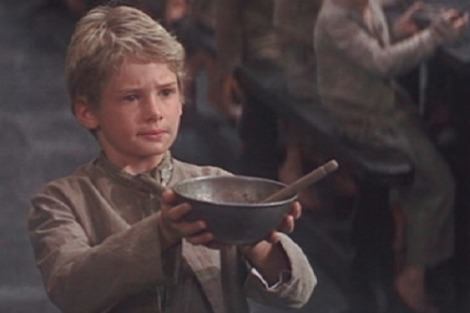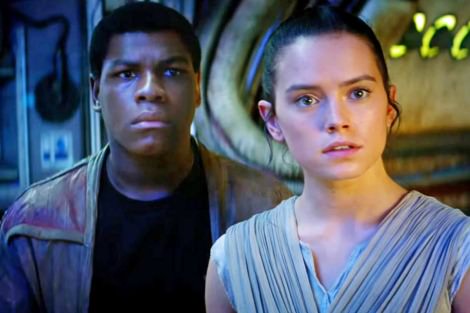Keywords: Film
There are more than 200 results, only the first 200 are displayed here.
-

ARTS AND CULTURE
- Tim Kroenert
- 08 September 2016
2 Comments
Don't mistake this for an idyll. Incongruently, the youngest child has built a bone shrine to Pol Pot. The father oversees a rigorous physical exercise regime; later he will boast that they have the fitness levels of elite athletes. Yet during a rock climbing expedition, Ben is unsympathetic when one of them injures himself, insisting the boy draw on his personal resources to extricate himself from very real peril.
READ MORE 
-

AUSTRALIA
- Kate Galloway
- 26 August 2016
15 Comments
Oliver Twist is still used to aid understanding of the trauma arising from poverty, and the suffering of children at the hands of individuals and within institutional settings. In broader Australian society we assume Dickensian attitudes to children have evolved. Aligned with the sentiments behind child protection, society's image of children and childhood is idyllic. Yet beneath this veneer lies a substratum of deeply ambivalent, even malevolent, attitudes towards children with a distinctly Dickensian flavour.
READ MORE 
-

ARTS AND CULTURE
- Tim Kroenert
- 25 August 2016
War Dogs is the latest in a string of films from the past few years that are custom made for our cynical times; deeply ironic black comedies and dramas featuring antiheroes who profit to the point of excess off the misery of others. Where those films dealt with the finance industry and gained relevance from the backdrop of the Global Financial Crisis, this one shifts focus to the grimier world of arms dealing, in the context of Bush era conflict in Iraq and Afghanistan.
READ MORE 
-

ARTS AND CULTURE
- Tim Kroenert
- 19 August 2016
6 Comments
The film's quiet humour leaves open many spaces for reflection on getting older, and on mortality. Tomas is uncomfortable with the subject of death, but Julian is determined to confront it with honesty and dignity. His activities during those four short days reveal he possesses a well formed conception of his own humanity and mortality that is not short of admirable. We are as sympathetic to Paula raging against her cousin's resignation, as we are to Tomas' growing acceptance.
READ MORE 
-

ARTS AND CULTURE
- Tim Kroenert
- 12 August 2016
1 Comment
There's a bagel character, coded as Jewish, and a lavash (Armenian flatbread), coded as Palestinian, who clash because they have to share an aisle. 'Isn't the aisle big enough for both of you?' asks Frank. In this and other ways the film points to the destructive power of religious belief corrupted by self- or socio-political interest. On the other hand it ignores the role religion can play in developing robust ethical thinking about the ways in which we can interact meaningfully with others and the world.
READ MORE 
-

AUSTRALIA
- Fatima Measham
- 05 August 2016
Perhaps what will ultimately convince media and entertainment companies that it is in their interest to be sincere about diversity is that there's money in it. A UCLA study found that in 2014, eight films that had diverse casts (out of 163) also had the highest median global revenues and returns on investment. In addition, TV shows with majority non-white casts rated extremely well, even among white households. This challenges conventions around what media consumers find appealing.
READ MORE 
-

ARTS AND CULTURE
- Tim Kroenert
- 05 August 2016
The interviewees regard Vertigo with awe, waxing lyrical about its psychosexual subtext; but not a word is said about the inherent misogyny of a film that is explicitly about a man's objectification of a woman. The film's most interesting segment however concerns the pre-eminence of guilt in Hitchcock's films, and the role it plays in shaping human activity. This, says Martin Scorsese (a filmmaker similarly preoccupied with guilt and sin), may define Hitchcock as an essentially Catholic filmmaker.
READ MORE 
-

ARTS AND CULTURE
- Tim Kroenert
- 30 June 2016
1 Comment
This strange and engrossing Italian film proffers an unsettling rumination upon the rituals of mourning, and upon a mode of grief which itself is a kind of death. It opens with a sweeping close-up of an imposing crucifix, and the fine musculature of a graven Christ. A mass of mourners is then revealed, and before them a woman, immobile and weeping silently. The camera angle cuts to calf level, to reveal a trail of urine more copious than her tears, running down her leg to her shoes.
READ MORE 